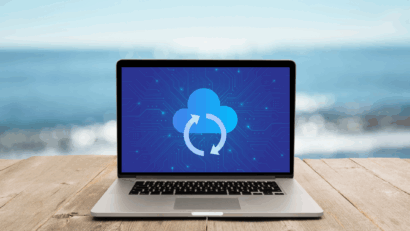7 Benefits That Cloud Backup Offers Healthcare Providers
As the demand for better healthcare rises in the U.S., more healthcare organizations are utilizing cloud computing. There’s been an increase in demand for healthcare services due to aging populations and the growing prevalence of chronic diseases.
Healthcare providers are experiencing cost pressures as a result of the need to do more, along with expectations for better outcomes that deliver increased value. This demand has driven healthcare providers to depend on cloud computing because it provides a cost-effective, on-demand resource for them to access the information they need to make important decisions.
However, despite the degree to which the cloud has been adopted in the healthcare world, not all organizations are reaping every benefit available to them. Case in point — do you have a cloud-based backup?
Are You Backing Up Your Healthcare Organization’s Data In The Cloud?
If you’re not already using a cloud backup service, then you’re behind the times.
According to Acronis’ 2019 World Backup Day Survey, 48.3% of surveyed businesses already use a cloud-based backup exclusively, and an additional 26.8% use a combination of cloud and onsite backup.
If you’re only using an onsite backup, that’s certainly a good first step. But do you think it is enough?
After all, your practice’s most valuable asset is your data, and today that data can be stored just about anywhere. That could mean relying on a physical onsite server – but do you know the risks that come doing so? A cloud backup provides a reliable contingency against data loss.
5 Threats To Your Practice’s Data Integrity
- Hardware & Software Failure: Hard drives fail every day for a variety of reasons. While some failures occur simply because the hardware becomes worn out, others fail prematurely due to external factors like:
- Overheating
- Water or fire damage
- Exposure to magnetic fields
- Power outages or surges
- Impact due to being dropped
- Human Error: Every day we create, update, save and delete files; it’s just part of our everyday business life. It’s no wonder that sometimes, we delete files or overwrite files by accident. It’s just the cost of doing business.
- Computer Viruses And Malware Infections: There are new viruses that pop up every day that put your data at risk. While being connected to the Internet has its benefits, it also comes with a number of risks that just have to be accepted – malware, viruses, phishing, etc.
- Natural Disasters: The fact is that mother nature doesn’t care if you backed up your work or not. A server room flood, vital infrastructure being knocked out by winds, and even worse during a major weather event can quickly erase both local and offsite data reserves if your backups aren’t far enough away from your offices.
- Hackers: Data loss is often the result of poor digital security; without the right defenses, cybercriminals can easily infect an IT system with ransomware or other types of malware and compromise company data. Ransomware is likely today’s biggest threat to cybersecurity. You hear about it everywhere, along with a range of possible solutions, most of which are defensive ways to keep the intruders out before they encrypt your files and send you the ransom note.
7 Reasons To Use A Cloud Backup Solution
- Cut Costs: Cloud storage is a perfect way to reduce your IT costs. Data can be backed up directly to the cloud without the risk of data loss, which eliminates the costs and resources associated with on-premise data protection solutions.
- Reliable Contingency: Power outages, cyber attacks, hardware issues, and human error are all common occurrences — and when they stop you from getting work done, there are major effects; lost wages, diminished productivity, unhappy patients, and in some cases, legal and compliance issues. A cloud backup solution addresses each and everyone one of these possibilities.
- Convenient Access: With backups of your data and applications in the cloud, you always have secure and easy access to everything you need to continue working and treating patients.
- Confident Security: The security features and control options provided through a professional data center will vastly outpace your onsite capabilities.
- Automated Continuity: With your backup in the cloud, you won’t need to monitor any onsite processes — backups take place automatically on a regular basis.
- Robust Compliance: The right cloud backup solution can be configured to meet the strict HIPAA compliance requirements your practice is subject to. This additional layer of data integrity protection will only further strengthen your current compliance initiatives.
- Complete Scalability: No matter how your practice changes, whether growing, expanding to multiple locations, or otherwise, the cloud is flexible enough to precisely fit their needs.
Safe Network Solutions Will Help You Find The Right Cloud Backup Solution
Due to the benefits it provides, the adoption of cloud computing solutions in healthcare is anticipated to accelerate in the coming years.
It’s important to identify which applications and services should be migrated to the cloud. Migration isn’t always easy and should be managed by an IT professional that is experienced in cloud migration services.
Furthermore, to fully benefit from cloud computing, healthcare organizations should develop a strategy that complements their operational goals. Cloud solutions for healthcare organizations will continue to provide new and improved patient care capabilities as more advances are accomplished.
Need expert assistance getting started?
Safe Network Solutions will manage your cloud backup up you, ensuring you always have access to a recent copy of your data, no matter what happens.
Get in touch with the Safe Network Solutions team to talk about cloud-based backup.

Safe Network Solutions is a technology consulting firm located in Nashville, TN. We are focused on reducing our Clients’ stress and the time they spend handling IT related issues. As technology has become more integrated with daily business tasks, downtime is not an option. Whether your systems reside on-premise, in the cloud, or in a hybrid setup, you need a partner with expertise in a wide array of technologies, with a security focus.


